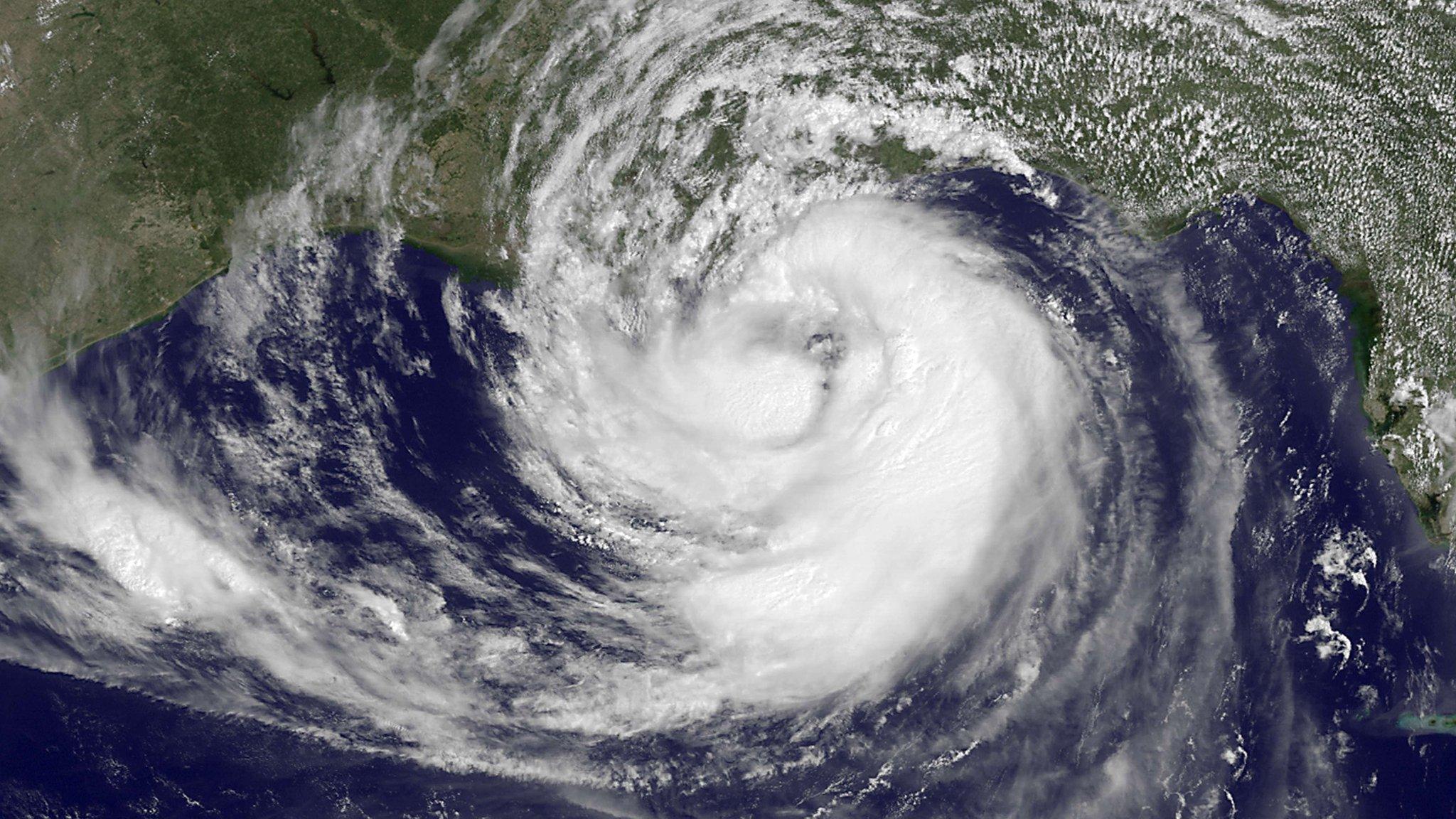'Record breaking' flooding after Hurricane Helene hits south-east US
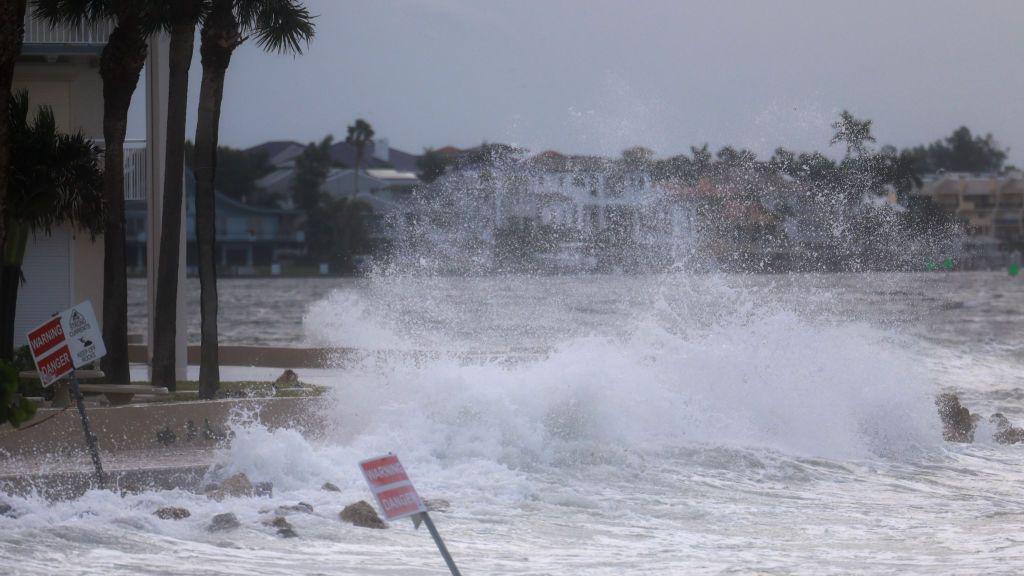
- Published
Nearly four million people are without power in the United States, after a strong hurricane hit south-eastern areas of the country.
Hurricane Helene reached the state of Florida on Thursday. With recorded wind speeds of 140 miles per hour, it’s the most powerful storm on record to hit an area known as Florida’s Big Bend.
Helene has since weakened to a tropical storm as it‘s moved further inland into Georgia and the Carolinas (The US states of North Carolina and South Carolina).
Officials are helping those in need and emergency services are using boats, helicopters and large vehicles to rescue people stranded in floodwaters.
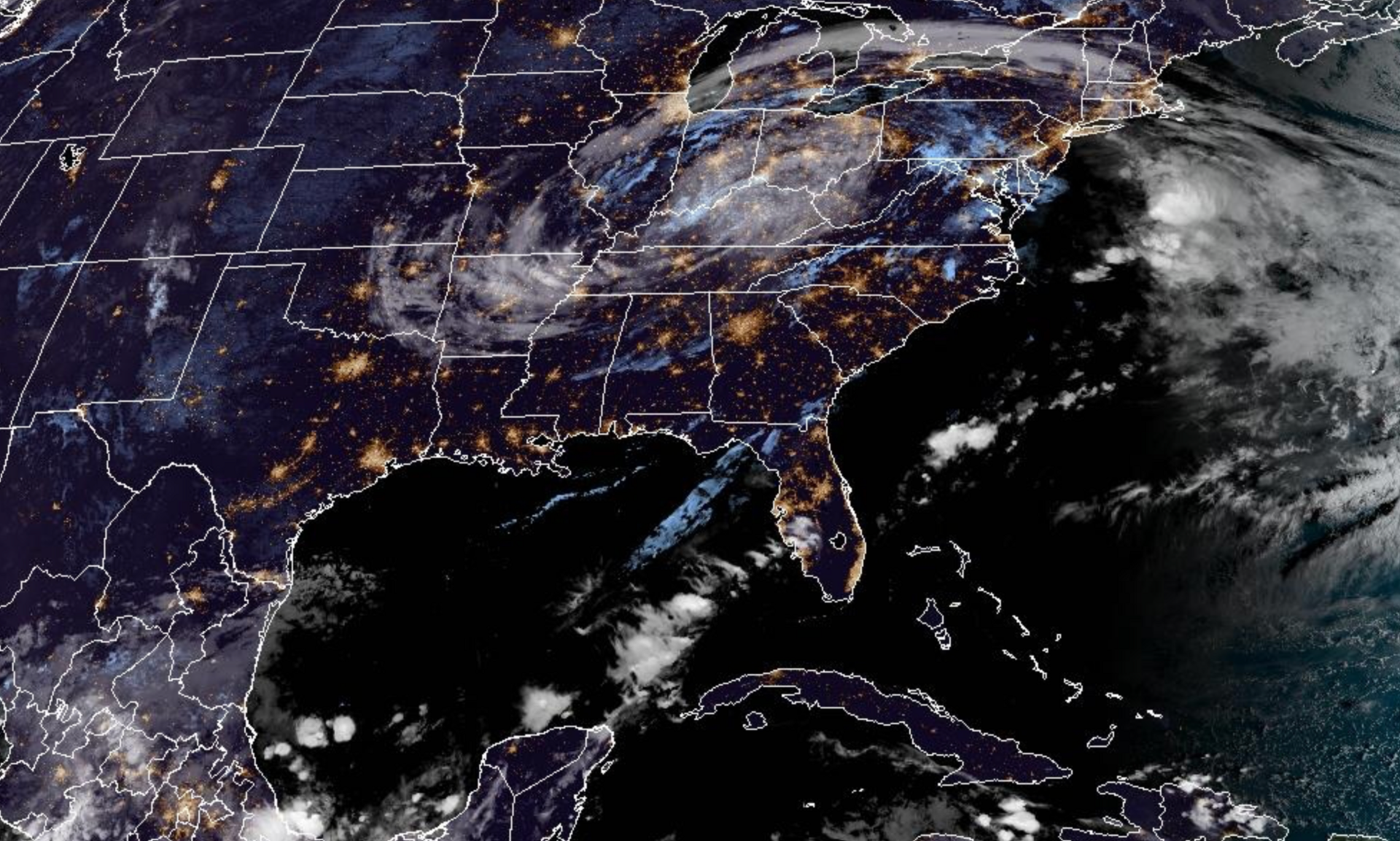
The storm has moved north from Florida and into the states of Georgia and North and South Carolina
More like this
The Big Question: How do we predict the weather? Video, 00:01:50
- Published14 December 2017
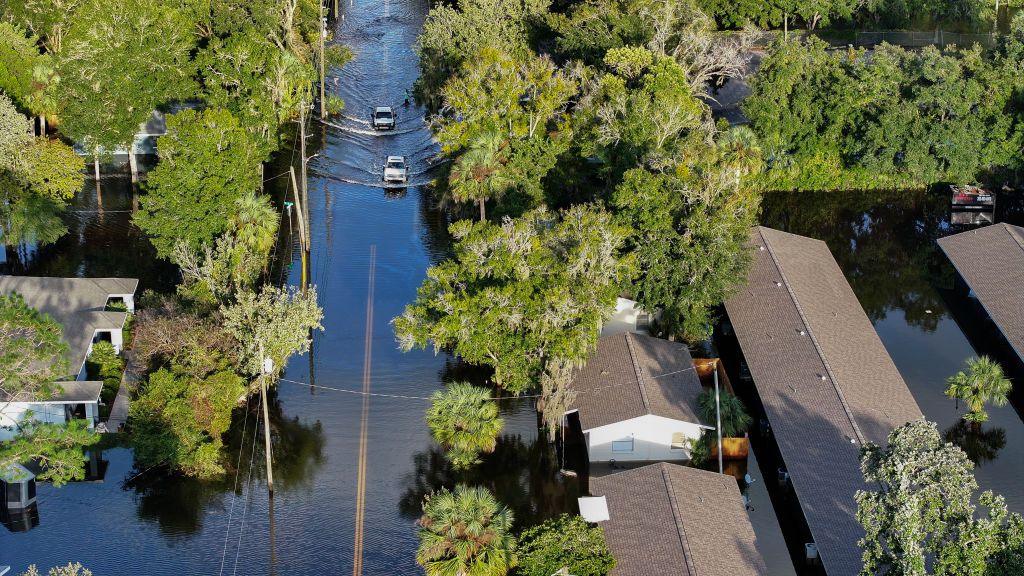
Vehicles drive through flood waters in Crystal River, Florida
The storm has seen 'record breaking' river flooding in several southern states, according to the National Hurricane Center, with serious flooding reported in Asheville, a city in western North Carolina.
More evacuations were ordered overnight into Saturday as flooding threatened to overflow from dams in North Carolina and Tennessee.
Sadly, more than 40 people have died because of the storm.
How big is hurricane Helene?
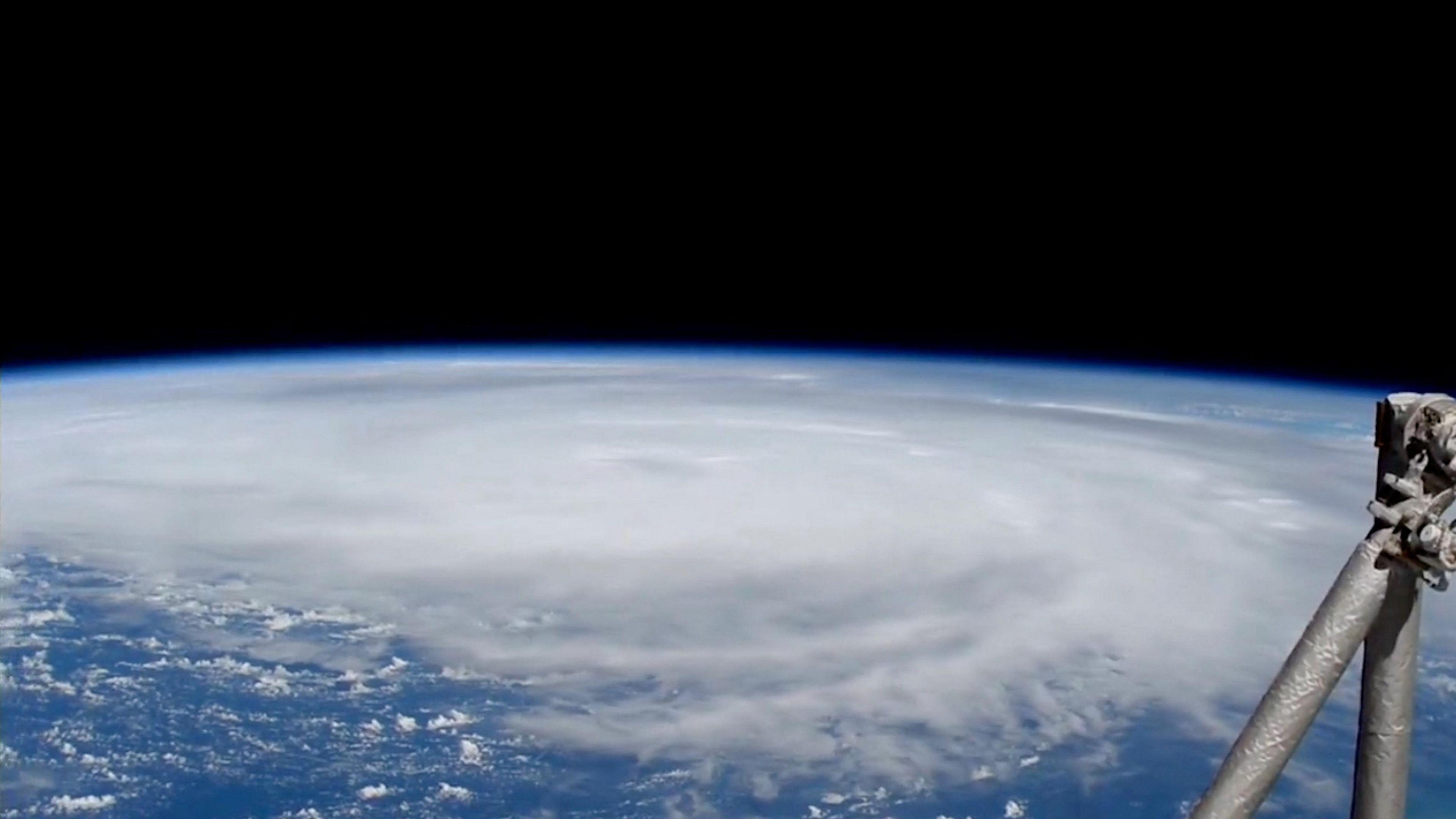
This satellite image shows Hurricane Helene over the Gulf of Florida
Hurricane Helene is the fifth hurricane of the 2024 Atlantic hurricane season, when storms of this kind are more common. The hurricane season continues until the end of November.
The hurricane is the 14th most powerful to hit the US since records began. At roughly 420 miles (675 km) wide, it is behind only two other hurricanes in terms of its size - Ida in 2017 and Opal in 1996, both of which were 460 miles wide.
Due to the size of Helene, the impact of strong winds and heavy rain have been widespread across Florida, Georgia, Tennessee and the Carolinas.
What is a hurricane?
Hurricanes are powerful storms which develop in warm tropical ocean waters.
In other parts of the world, they are known as cyclones or typhoons. Or referred to as "tropical cyclones".
Tropical cyclones are characterised by very high wind speeds, heavy rainfall, and storm surges - which is a temporary rise in sea-levels. This often causes lots of damage and flooding in areas where people live.
Simon King explains what hurricanes, cyclones and typhoons are
In the United States, hurricanes are classified on a scale of 1-5 with Category 5 being the most intense.
That's based on the Saffir-Simpson Hurricane Wind Scale, which looks at factors including the storm's sustained wind speed.
Storms reaching Category 3 and above are considered "major hurricanes".
- Published31 August 2023
